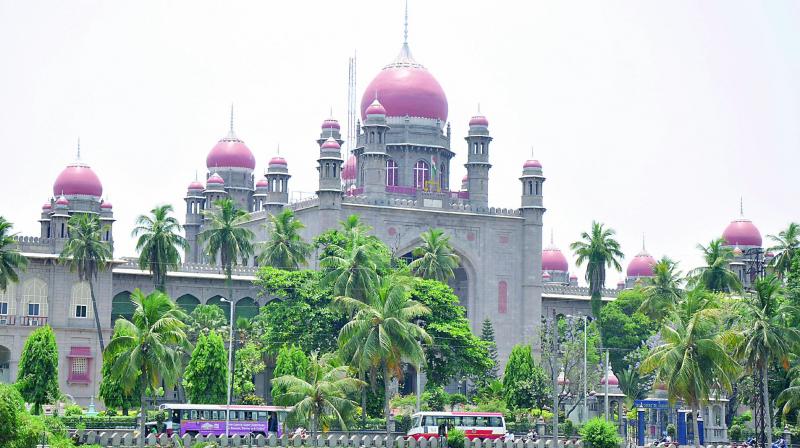Don’t act high-handed over land deals, Telangana high court warns state

Hyderabad: The Telangana High Court made it clear to the state government and the revenue authorities not to act high-handed and take over the title deed of the disputed lands by claiming that the lands were in the prohibited list or were government lands.
The division bench comprising Chief Justice Raghavendra Singh Chauhan and Justice Shameem Akther, was dealing with an appeal by the Telangana state government, challenging the single Judge order, which had directed the revenue authorities to consider issuing pattadar passbooks to the Pratap Jungle Resorts Pvt Ltd for their 20 acres of land at Khanapur village of Gandipet Mandal in Rangareddy district.
The state government contended that the said land was under dispute for its title deed and said that it was listed in the prohibited list for Registration. Upholding the single Judge order, the Bench directed the authorities to grant e-pattadar passbooks to Pratap Jungle Resorts Pvt Ltd on the condition that rights under these passbooks were subject to the decree passed by a lower court on the title deed dispute.
As per the resort owners, they had purchased the land in 1989 through registered documents. Title deed and pattadar passbooks too were issued to them by the authorities. But revenue authorities had started questioning the title of the land and charged the company owners with manipulation, suggesting that they had entered their names in the revenue records through fraudulent means.
The joint collector had even passed an order to this effect deleting the names of these persons from the revenue records by mentioning that the lands were classified as Poramboke Sarkari in Sethwar. But this order was later quashed by a single judge of the High Court in 2008.
After that the authorities rejected the issue of pattadar passbooks. Aggrieved, the resorts owners approached the court, which directed the authorities to consider the issue of pattadar pass books.
While dealing with the case, the bench observed that the state should approach the lower court on the title disputes rather than acting high-handedly against the people and causing them unnecessary problems.

